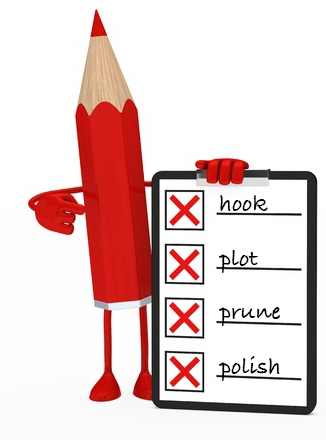 More and more writers are hiring their own developmental editors, whether they plan to self-publish their book or hope to land a literary agent and go for a book deal with a traditional publisher.
More and more writers are hiring their own developmental editors, whether they plan to self-publish their book or hope to land a literary agent and go for a book deal with a traditional publisher.
To give you an idea what a professional developmental editor could do for your book, here’s a checklist of some of the essential services we deliver:
• Help to get you started
Provide early feedback and creative suggestions when you’re still figuring out what the book is about. Help with focusing the plot, structure, literary style, and deciding which issues or aspects of the story to include or not.
Many very successful authors do this regularly with their editors, to avoid producing a first draft that has gone off the rails.
• Recommend a dramatic hook
Make sure the book starts in the best place and show you how to feather in the backstory. Punch up the opening pages so they’re intriguing and hold your reader’s rapt attention.
• Define the narrative voice
Offer suggested language so a first-person narrator sounds like the character in question. If it’s third person, be sure that the reader can tell if the voice is omniscient or from just one character’s perspective.
• Plug the holes
Identify problems like characters who pop up out of nowhere, references that make no sense, or confusing shifts in time and place. Stand in for puzzled readers who could stumble into these holes and wonder, “Huh?”
Provide new ideas to plug up the holes with clarifying details that don’t detract from your personal style or a deliberate plot line.
• Add transitions
Bridge gaps in the story that may require just a few sentences to move from one scene to the next, or might need a whole new scene, chapter or flashback to explain how one event led to another.
• Convert “telling” to “showing”
Suggest new dialogue, action, and visual description so readers can see, hear and feel your story with immediacy and engagement.
• Help you break out of writing blocks
Kickstart your creative juices to eliminate stalls and dead ends. Developmental editors can suggest specific new options to work around obstacles.
• Prune what can be done without
Sort out and trim what’s repetitious, a wrong turn, or otherwise will never be missed.
• Polish your prose
Buff up the writing until it shines, with line-by-line editing, including changing, shifting, deleting words, phrases and whole sentences.
• Nail down the ending
Reinforce the closure, emotional climax, and reader satisfaction as the curtain falls.
Applause!
What about you?
Have you worked with a developmental editor? I hope you’ll share your experience and ideas here in comments, and I’ll watch for any questions.
For more on this topic, check out What to expect from a developmental editor, and Choosing a freelance editor: What you need to know
I need a developmental editor for a half finished manuscript. Someone with whom we would make a thrilling trip through the contemporary issues in Africa today and in the near future.
Any contacts out there?
Joseph Ruhamya
Kampala, Uganda
I agree with all of the above. Maybe I’m biased, but as an editor myself as well as being a writer who has his personal editor to keep himself on the literary “straight and narrow,” I’ve always felt that everybody needs editorial help and should not venture into publishing, self or traditional, without getting one’s writing project aided by an assisting editor. And don’t let the fee scare you off; it’s worth the cost if you’re serious about writing a quality publishable novel or nonfiction book.